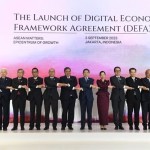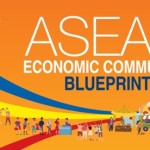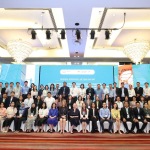Total number of posts 463.
On the morning of May 25, 2025, the 25th ASEAN Economic Community Council Meeting (AECC 25) took place at the Kuala Lumpur Convention Center, Malaysia under the chairmanship of the Malaysian Minister of Investment, Trade and Industry and the participation of the Economic Ministers of ASEAN member countries, Timor-Leste (as an observer) and ASEAN Secretary-General Kao Kim Hourn. The Vietnamese delegation attending the Conference was led by Minister Nguyen Hong Dien, along with representatives of the Ministry of Foreign Affairs and units under the Ministry of Industry and Trade.
The 25th AECC is a ministerial meeting of the ASEAN Economic Pillar to prepare for the 46th ASEAN Summit to be held on 26 and 27 May 2025. At the meeting, the Ministers discussed the global and regional economic situation and prospects, especially the recent unpredictable geopolitical developments, noting that since the US announced its “reciprocal tax” policy, global trade has entered a new phase of uncertainty, and ASEAN’s GDP growth forecast has been revised down from 4.7% to 4.4% for 2025, and from 4.7% to 3.8% for 2026. Although inflationary pressures are expected to ease, this could be a sign of weakening domestic demand and a more cautious investment environment.
Based on the reports of the ASEAN Secretariat, the Conference congratulated Laos on the full completion of its priority economic initiatives during its ASEAN Chairmanship 2024 and updated Malaysia on the implementation of its priority economic initiatives during its ASEAN Chairmanship 2025; discussed the final reports assessing the effectiveness of the implementation of the ASEAN Economic Community (AEC) Blueprint 2025 and acknowledged the completion of the development of the AEC Strategic Plan for the period 2026-2030, with a vision to 2045.
The Ministers also spent time reviewing the implementation of work related to cross-pillar issues of the ASEAN Economic Community such as the ASEAN sustainability agenda, notably the progress of the implementation of the ASEAN Strategy for Carbon Neutrality, the ASEAN Power Grid; the Bandar Seri Begawan Roadmap for ASEAN Digital Transformation; the Global Value Chain and the adoption of the ASEAN Industrial Project Initiatives Framework (AIPBI). The Ministers also discussed the status of Timor Leste's accession to ASEAN and preparations for the ASEAN Summit on 26 and 27 May 2025 and adopted the documents of the Economic Pillar submitted to the Summit, including: (i) the report of the AECC Council to the Summit, (ii) the content related to the ASEAN Economic Community Pillar in the ASEAN Chairman's Statement at the Summit, (iii) the Joint Statement on ASEAN-Gulf Cooperation Council (GCC) Economic Cooperation.
Speaking at the Conference, Minister Nguyen Hong Dien highly appreciated the achievements that ASEAN countries have made in the process of implementing the Master Plan on building the ASEAN Economic Community 2025, especially in areas such as trade facilitation, participation in the global value chain, building competition policies and consumer protection, and congratulated ASEAN on its initial completion of the ASEAN Economic Community Strategic Plan for the period 2026-2030. The Minister also emphasized that in order to contribute to the sustainable growth of the region in the coming time, ASEAN countries need to consider continuing to firmly adhere to the following orientations: promoting deep regional economic integration; maintaining commitments in intra-ASEAN agreements and promoting relations between ASEAN and external partners, including China and the United States; striving to complete 18 priority economic cooperation initiatives in 2025; and continue to research and seek economic cooperation opportunities with new partners, such as the GCC Council, to expand and diversify the market.
The 25th AECC Conference was a great success, completing the preparations of the Economic Pillar for the 46th ASEAN Summit and related Summits taking place immediately after, on May 26 and 27, 2025./.
Source: Multilateral Trade Policy Department, Ministry of Industry and Trade.














